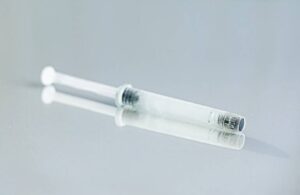
These deep-cold drugs are stored and transported on dry ice at temperatures reaching -100°C. Schott designed the syringes from an advanced, pharmaceutical-grade polymer, delivered in a standardized nest and tub configuration. This ensures compatibility on major fill-finish lines to simplify the filling process.
Drug manufacturers can benefit from an extensive scientific data package developed by Schott. It details the 1 mL-long syringes’ performance at deep-cold temperatures. These syringes also raise the bar on quality, Schott said, with best-in-class specification and a fast-track supply process.
“While pre-fillable syringes are typically favored for drug delivery due to their speed and convenience, they were not a viable option for drugs that require storage at -100°C. But now, for the first time, deep-cold medications can be introduced to the market using pre-fillable polymer syringes,” said Andreas Reisse, CEO of Schott Pharma. “The drug development pipeline for these drugs is extensive, including various therapies such as mRNA, cell, and gene therapies.”
More about the Schott Pharma pre-filled syringes
Schott said deep-cold medications require delivery systems capable of withstanding harsh conditions. The company’s polymer syringes protect the drugs even at temperatures approaching -100°C while maintaining syringe functionality.
“Our polymer syringes are a favorable choice for deep-cold drugs thanks to the entire platform system, which includes the polymer material, siliconization, the plunger material, and the overall quality management system, among others,” explains Mario Haas, head of drug delivery systems at Schott Pharma. “Based on our track record in the field of mRNA-based applications, we are ready to bring the next deep-cold drugs to the market together with our customers.”
Schott built its drug delivery system, called Toppac freeze, from cyclic olefin copolymer (COC). The break-resistant, biologically inert material features advanced barrier properties to ensure drug stability. Its scientific data package features data on container closure integrity, functionality and particulate generation after freeze and thaw cycles.
“Our state-of-the-art manufacturing process is designed to achieve consistently high quality,” said Haas. “Combined with enhanced quality control of all critical to quality (CtQ) syringe attributes, we can ensure that each polymer syringe fulfills the high requirements needed for deep-cold applications.”
